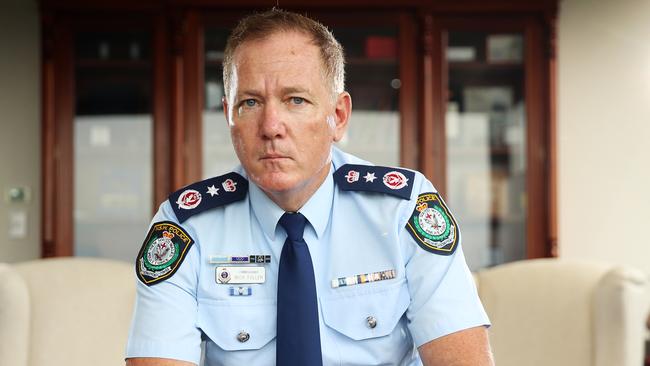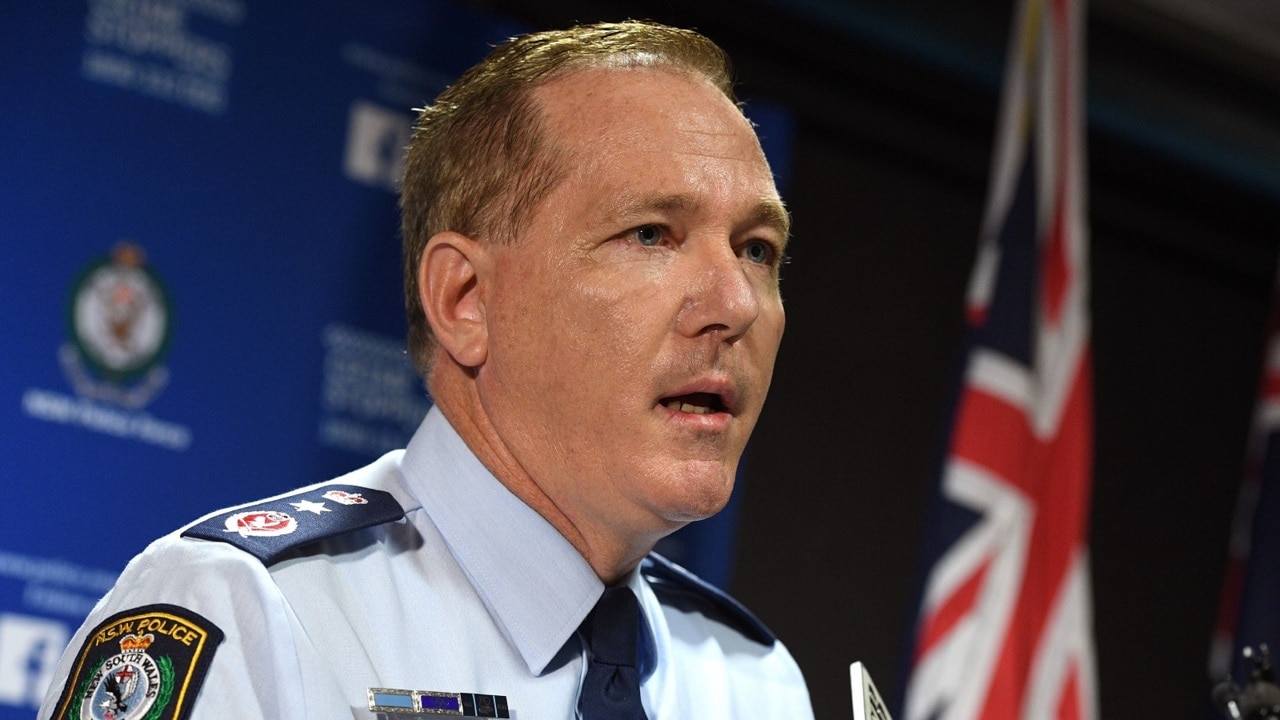Police commissioners reject pill testing
The police commissioners of Australia’s two biggest states have rejected pill testing.

The police commissioners of Australia’s two biggest states have rejected pill testing, with Mick Fuller from NSW saying its advocates “want to legalise drugs by stealth’’ and Victoria’s Graham Ashton saying it would be unlikely to save lives.
In what appeared to be a swipe at Greens MP Cate Faehrmann’s revelations she used ecstasy into her 40s, Mr Fuller said “leaders in our community need to lead by example’’.
“That goes for politicians, police commissioners, sports stars … these individuals who want to legalise drugs by stealth through pill testing need to be seen for what they are,’’ he said.
Ms Faehrmann, a former adviser to Greens leader Richard Di Natale, entered the pill-testing debate this week by becoming the first Australian politician to admit she used ecstasy.
Mr Fuller said: “There is ample evidence that drugs are not safe. Even those with absolute purity. All drugs can kill. This is the message we need out there.”
Mr Ashton said most drug overdoses at music concerts were the results of “poly’’ use: one person taking multiple pills. “Pill testing does not stop this,’’ he said.

The commissioners’ comments came as a preliminary hearing of an inquest into the deaths of five people at NSW music festivals since September yesterday heard they had all involved the party drug MDMA or ecstasy.
The circumstances of the deaths, including the quantity of drugs consumed and the purity of the MDMA pills, were different in each case.
Counsel assisting the coroner, Peggy Dwyer, told the hearing a single MDMA pill had proved lethal for one of the revellers while another young man who ingested six to nine pills over the course of the day had an MDMA purity of 77 per cent.
“(That is) a very high rate of purity,” Dr Dwyer said.
There was no clear pattern on the impact of combining alcohol with MDMA. “In one case, a young person who died was drinking as well as consuming what appeared to be MDMA, but in other cases there was no alcohol involved,” she said.
Mr Ashton said illicit drugs had a negative affect on all aspects of a person’s life and there was no guarantee a pill-testing regime would identify toxic drugs.
“Identical illicit drugs can affect people differently depending on purity, tolerance levels and their existing medical conditions,’’ Mr Ashton said.
“Too often a death from overdose leads to an automatic call for pill testing as a solution when in (Victoria Police’s) view it is not. There is no such thing as safe illicit drug use. That is why they are illicit.’’
He said society opposed illicit drug use because of its “long-lasting and devastating societal impacts’’. “What message does it give our children when we make an exception at music concert gates?’’ he added.
Queensland Police Commissioner Ian Stewart took a different stance, revealing that pill testing was being actively considered. “The Queensland Police Service is working with other government agencies to consider the issue of harm minimisation more generally,” he said.
“This process includes assessing whether pill testing would be suitable among a suite of measures that could be considered. The QPS will continue to take appropriate action within current legislation to ensure the safety of patrons at events.”
Mr Fuller’s comments mirror the stance of NSW Premier Gladys Berejiklian, who has refused to yield to pressure from academics, physicians and others to introduce a system of pill testing. Health Minister Brad Hazzard said medical and toxicological advice he had received concerning the five deaths indicated that “pill testing would not have been of any assistance”.
Mr Hazzard announced that Electric Gardens at Centennial Park and the Rolling Loud and Hardcore til I Die events at Sydney Olympic Park would have an increased medical presence this weekend.
NSW Opposition Leader Michael Daley has committed to a summit on the issue.
Ms Faerhmann said this week she had felt compelled to “bring some honesty” into the debate.
“Since my 20s, I’ve occasionally taken MDMA at dance parties and music festivals. I know journalists, tradies, lawyers, public servants, doctors, police and yes, politicians (most well into their 40s) who have done the same,” Ms Faehrmann wrote.
Additional reporting: David Murray, Deborah Cornwall


